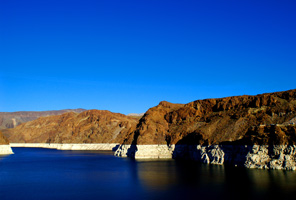 Stephanie Deitrick, PhD student in the School of Geographical Sciences and Urban Planning at ASU and past DCDC Graduate Research Assistant, is currently recruiting people to answer questions on the influence of visual representation on decision-making. The survey will take 20-30 minutes to complete.
Stephanie Deitrick, PhD student in the School of Geographical Sciences and Urban Planning at ASU and past DCDC Graduate Research Assistant, is currently recruiting people to answer questions on the influence of visual representation on decision-making. The survey will take 20-30 minutes to complete.
The results of the research may be published, but your name will not be used. Participants in this survey will have the opportunity to be entered into a drawing for Amazon gift cards ranging from $50-$80 each.
If you would like to help Stephanie with her research, please link to the visualization water planning survey and complete the questionnaire. Thank you from Stephanie for your assistance.

